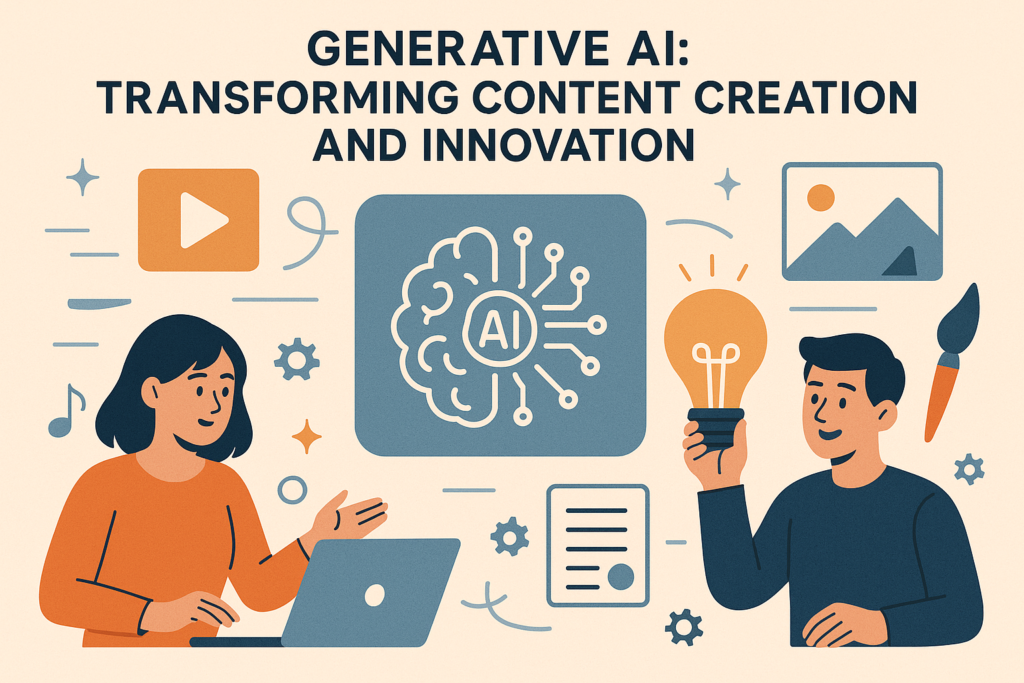
Generative AI, also known as Gen AI, is rapidly reshaping the landscape of digital innovation. Unlike traditional AI, which focuses on analyzing or sorting data, Generative AI creates new content—ranging from text and images to music, code, and even videos. Tools like ChatGPT, DALL·E, Midjourney, and GitHub Copilot are putting Generative AI into the hands of creators and professionals everywhere.
One of the most prominent applications of Generative AI is content generation. Bloggers, marketers, and writers now use Gen AI to draft articles, product descriptions, social media posts, and headlines within minutes. This ability to generate high-quality content at scale offers a major advantage in the publishing and digital marketing industries. It also levels the playing field for small businesses, reducing their reliance on large creative teams.
In the world of design and visual media, Gen AI tools enable artists to generate stunning illustrations and graphic content simply by inputting prompts. From concept art to image enhancements, Generative AI reduces the time from idea to execution. Similarly, in filmmaking and animation, AI is being used to script, storyboard, and visualize scenes—accelerating pre-production workflows.
Education is experiencing a significant transformation thanks to Gen AI. Students and teachers can now create personalized quizzes, summaries, and study guides tailored to unique learning preferences. In the realm of software development, platforms like GitHub Copilot assist developers by generating code, streamlining routine tasks, and enhancing productivity.
The healthcare industry is exploring Gen AI in multiple areas, including generating synthetic medical images for training, summarizing patient data, and improving diagnostic accuracy. In the legal sector, firms are turning to Generative AI for document drafting, contract analysis, and legal research support.
Despite its advantages, Gen AI raises ethical concerns. These include content authenticity, misinformation, intellectual property rights, and bias in algorithmic outputs. Developers and businesses must prioritize transparency and adopt ethical AI frameworks to ensure responsible usage.
Key Takeaway
The future of Generative AI is promising. As the technology evolves, it will democratize creativity, improve workflows, and drive innovation across industries. Companies that embrace Gen AI early stand to gain a competitive edge by unlocking new efficiencies and creative potential.
Whether you’re a content creator, entrepreneur, educator, or technologist, exploring Generative AI now is essential. This isn’t just a trend—it’s a fundamental shift in how we create and collaborate.